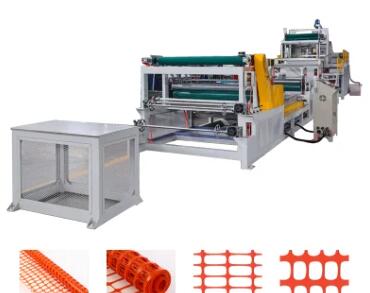Revolutionizing Production: The Impact of Automation and Technology on Plastic Machinery
2024-01-05
Introduction:
The landscape of manufacturing has undergone a profound transformation with the advent of automation and technology. In the realm of plastic machinery, these advancements have not only increased efficiency and precision but have also revolutionized the entire production process. In this blog, we will explore how automation and technology have left an indelible mark on the field of plastic machinery, ushering in a new era of innovation and productivity.
1. Precision in Injection Molding:
Automation has significantly enhanced the precision and accuracy of injection molding processes. Automated systems can control variables such as temperature, pressure, and cycle times with unparalleled accuracy, leading to the production of high-quality plastic parts with minimal variations.
2. Increased Production Speeds:
Automated plastic machinery has substantially increased production speeds. Robotics and advanced machinery can operate 24/7, reducing production time and allowing manufacturers to meet growing demands in a more timely manner.
3. Energy Efficiency:
Technological advancements in plastic machinery have led to more energy-efficient processes. Smart controls and monitoring systems optimize energy consumption, contributing to sustainability efforts and reducing the environmental impact of plastic manufacturing.
4. Integration of Industry 4.0:
The integration of Industry 4.0 concepts has brought forth a new era of interconnected and smart manufacturing. Sensors, IoT (Internet of Things) devices, and data analytics play a pivotal role in monitoring and optimizing plastic machinery operations in real-time.
5. Predictive Maintenance:
Automation has enabled the implementation of predictive maintenance strategies. Smart sensors gather data on machinery performance, allowing manufacturers to predict when maintenance is required, minimizing downtime and preventing unexpected breakdowns.
6. Customization and Flexibility:
Technology-driven plastic machinery allows for greater customization and flexibility in production. Computer-aided design (CAD) software and programmable controllers enable manufacturers to easily switch between different molds and product specifications without extensive downtime.
7. Robotics in Assembly and Packaging:
Automation through robotics has streamlined assembly and packaging processes in the plastic manufacturing industry. Robots can perform tasks with speed and precision, reducing labor costs and minimizing the risk of errors in the assembly line.
8. Quality Control Systems:
Advanced technologies, including machine vision systems and artificial intelligence, have been integrated into plastic machinery for quality control. Automated inspection systems can identify defects, ensuring that only products meeting stringent quality standards reach the market.
Conclusion: A Paradigm Shift in Plastic Manufacturing
The impact of automation and technology on the field of plastic machinery cannot be overstated. From precision in injection molding to the implementation of Industry 4.0 principles, these advancements have ushered in a new era of efficiency, sustainability, and innovation. As technology continues to evolve, the plastic manufacturing industry will likely see further breakthroughs, creating a more connected, agile, and sustainable future for the production of plastic goods.



